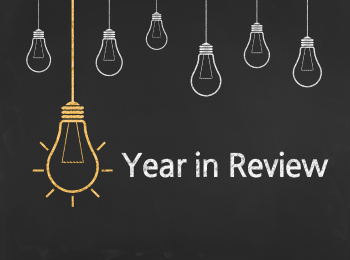Emerging Risks Mean New Risk Exposures and Insurance Solutions
Each year, the CRO (Chief Risk Officer) Forum, formed in the Netherlands in 2004 to advance risk management practices in the insurance industry, provides an update on emerging risks. Its 2022 report may hold no surprises for seasoned insurance agents, but it’s worth reviewing so that your organization can focus on areas that may impact your clients, and your ability to offer important insurance coverages. We’ll look briefly at a few of their top risk picks so that you can better help your clients manage their risks through standard risk management practices such as risk transfer and insurance purchase.
|
Author: Nancy Germond According to the CRO Forum, emerging risks are “Risks which may newly develop, or which already exist and are continuously evolving. They are characterized by a high degree of uncertainty in terms of impacts and likelihood and have a substantial potential impact on insurance business lines, investment classes and/or operations.” The CRO forum classifies risk as low, medium, or high, according to these risks’ impact on businesses, insurance and financial institutions. The report focuses on seven major trends. These include the following.
The publication also aligns emerging risks on the time horizon. Risks that have already “significantly impacted the insurance sector” include emerging infectious diseases, geopolitical conflicts, cyber risk, legal and regulatory uncertainty, skills shortages and reskilling, critical infrastructure blackouts and physical risks of climate change. In this article, I’ll focus on some of the medium and high risks that may soon impact insurance coverages and your agency’s management practices if they have not already done so. For a full copy of the CRO Forum’s report, click the link. Medium-Risk Categories Skills Shortage and Reskilling It will come as no surprise to agency owners that we’re having trouble hiring, especially finding those with the right skills and attitudes to serve our clients. This report predicts a negative impact on claims handling, with claims possibly going “unnoticed and unattributed.” Retirement waves are not only impacting our industry, but also engineering and medical skills “mismatches,” which can cause increases in poorly conceptualized designs or medical interventions. According to the report, “…skills shortages may result in the inability to sustain risk prevention measures, longer business interruption periods and more product failures. Inappropriate decisions or mistakes made by inexperienced or overworked medical personnel could lead to increased substandard medical outcomes and more medical malpractice claims. For life business, this could mean unanticipated deteriorations in mortality and morbidity.” Because many of these categories blend into each other, the report predicts “Mental health impacts on over-tired or under-skilled employees could be a longer-term consequence.” As an agency manager or owner, can you offer an employee assistance program, and do you remind your employees of the value of self-care? Are you going outside your industry to hire? Are you hiring for attributes and training for product knowledge? Mental Health The report states that 20% of the world’s population will struggle with mental illness at some time in their lives. Add prolonged quarantine to the mix, and many of your employees and clients may be at risk. The report estimates that two-thirds of those who struggle with depression, anxiety and other mental-health disorders go untreated. Today the stigma of mental illness and other mental health-disorders is much less pronounced. What can your agency do to support your employees who may struggle with managing their mental health? Are you recognizing that many of your new hires may arrive with chronic mental health and other medical conditions? How can you best support them? The report predicts claims increases related to mental health in not only health insurance, but in occupational disability, in life insurance as suicide and overdose rates soar and workers compensation claims. Metabolic Syndrome The report formerly labeled this risk as “obesity,” but now includes under this category obesity, hypertension and diabetes. Metabolic syndrome presents the possibility of developing “severe and chronic complications,” including heart disease, stroke and kidney and liver disease. The report states this syndrome will impact 20% to 25% of world adult population and will “increase in the future.” This will have a negative impact not only on healthcare, but workers compensation claims, where diabetes complicates many injuries, especially those affecting lower extremities. Socio-Economic Inequality According to the report, COVID increased socio-economic inequalities, increasing income and wealth gaps. The report believes the younger generation experiences “declining education, job prospects and mental well-being.” The report predicts this will impact financial markets and insurance demand. Digital Misinformation New digital intelligence proliferates, and evildoers use deep fakes and fake news for “fraud, to harass individuals, defame social groups, blackmail organization or destabilize political systems and markets.” A “diminished trust” in objective evidence can impact the insurance industry, especially in claims handling, where social inflation is only one area where we currently see threats. Explaining to your insureds the need for social media insurance protection under their homeowners and commercial general liability policies is a must in today’s world. Standalone reputational risk policies are also available for larger businesses. High-Risk Categories Emerging Infectious Diseases The report highlights how trade and travel networks, climate change and demographic factors create new opportunities for evolving pathogens. As we saw during COVID, insurers faced many COVID-related claims in business interruption and workers compensation. Many are still in litigation or are open to pay further medical treatment. Pandemics impact the entire economic system as well as insurance coverages, including supply-chain disruption that increases the time to repair damaged equipment and vehicles, as well as crop and farm animal impacts. Geopolitical Conflicts The war in Ukraine and other “bilateral or multilateral disputes between countries” can impact insurance and disrupt financial markets. Many insurers and businesses ceased or reduced operations in Russia once the Ukrainian conflict escalated. The report states the consequences of geopolitical conflicts will impact financial markets and insurance losses in property coverage, including business interruption and strike, riot and civil commotion. The report doesn’t mention kidnap and ransom or active assailant coverage, but any conflict domestic or foreign can impact those lines of coverage. In fact, NU Property Casualty 360° reported in August 2002, rates for active assailant coverage were up by double digits year-over-year. Demand for coverage was also up 50% year-over-year. Cyber Risks Calling the increase in the number and sophistication of cyber activity a “growing concern,” organizations struggle to respond. Proprietary corporate data and critical “industrial control systems” are at risk, according to the report. The report cautions against growing requests for personal identification and authorization and biometric identifiers, which can lead to more identity fraud and theft. Cyber risk insurance is no longer a “nice-to-have coverage” for most businesses; it’s a must have. Unless your organization has in-house cyber talent, work with experienced wholesale brokers who specialize in the many available cyber policy forms. Better yet, reach out to the Big I for more information on cyber risk coverage. Climate Change Physical Risks Climate change is front and center in today’s political debates. Here’s what the report has to say. “On the liability side, this has implications for insurers in the product design and through emerging climate change liabilities. New policy and regulatory measures constraining actions that contribute to climate change may lead to liability issues associated with greenhouse gas emissions. Increasing litigation activities may come with large losses under environmental liability, product liability and D&O/professional liability. On the asset side, assets may become obsolete due to policy changes (e.g., coal sector, diesel vehicles) or due to carbon-pricing…” While the report doesn’t state this, these “stranded assets” could increase arson and other fraudulent losses. Critical Infrastructure Failures Due to many governments’ tendencies to ignore infrastructure maintenance and construction, electricity, water supplies (look no further than Mississippi’s current water shutdown) and transportation can all suffer critical failures. These failures can lead to “a higher-than-expected frequency and severity of large property and non-property losses.” Satellites, GPS and communication systems may also fail, according to the report. Evolving Terrorism The report predicts the current inventive nature of terrorism makes it difficult to predict but lists it as high-risk category. Potential threats include nuclear, biological, chemical and radiological, as well as attacks on computer systems and industrial installations. Certainly, robust cyber coverages will continue to be of extreme importance to industrial, municipal and other large-scale operations. Mass casualty events, although not specifically listed as a threat in this report, could certainly continue, and insurance coverage is now available for that threat. In Conclusion Emerging risks can surprise us, as did COVID. As early as January 2020, there were significant signs that the virus could greatly impact the United States. Any emerging risk can quickly morph into losses that impacts us all, from a climate disaster (look at the Mississippi flooding right now) to medical implications. Reading the report, which takes only a few minutes to digest because of its graphical nature, can be depressing. Yet as insurance and risk professionals, we must remain vigilant against emerging risks and how they might impact our homes, families, employees and our businesses. On a final note, ISO/Verisk now has a dedicated team that analyzes emerging risks that may impact insurance coverage. To view their page, visit this link. First published: September 9, 2022 Updated: June 2, 2024 _____________________________________________________________________________________________________________________________________ Copyright © 2024, Big “I” Virtual University. All rights reserved. No part of this material may be used or reproduced in any manner without the prior written permission from Big “I” Virtual University. For further information, contact jamie.behymer@iiaba.net. |








